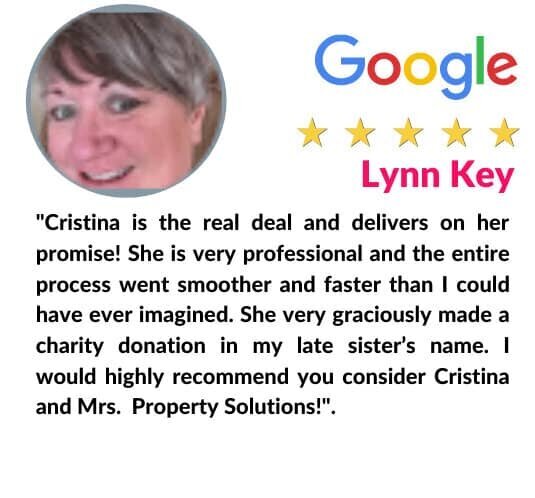Selling A House During Divorce in California Guide
Divorce is a legal process that divides specific assets acquired during the marriage. The house is one of the most valuable assets to be divided. Divorce law in this California determines the amount of ownership each spouse has in the marital home. Exceptions to these rules do exist.
Divorce courts can decide the distribution of assets between partners. Home sale options include co-ownership, asset splitting, and one spouse buying out the other’s share in the jointly owned property. This article covers the best advice for any house seller.
Real estate agent Mrs. Property Solutions buys homes in this area for cash. A house seller can also approach the buyer with an offer directly. The probate proceeding can be bypassed in cases of inherited homes. However, specific conditions may require you to obtain a divorce lawyer to have the right to sell the house for cash.
Table Of Contents
- How Does Selling Your House During a Divorce Work in California?
- Who Gets The House In a Divorce in California?
- Should I Sell Before or After Divorce in California?
- Who Gets to Stay in the House During Divorce in California?
- Alternatives to Selling During Divorce in California
- Divorce House Sale California, Frequently Asked Questions
- Easiest Way To Sell A House During A Divorce In California
How Does Selling Your House During a Divorce Work in California?
This California classifies signed marital property as communal property. If the property was acquired during the period of marriage, the divorce settlement will allocate equal ownership of the house to each spouse in the divorce. However, there might be exceptions to this rule. Equal ownership might not apply if the house deed was a gift from one spouse to another or if the home was acquired through an inheritance, for example.

The body of community property law in California is relatively simple compared to other states. In most divorce cases involving California, each spouse is treated as an equal partner relative to any debts or assets acquired during the marriage. Anyone facing divorce in California must comply with the rules in the book.
Step 1. Find A Divorce Attorney in California
Divorce court can determine the division of property in California. Courteous service is valuable when resolving disputes about spousal payments, cash sale offers, and other details. All sellers of the house must have legal authorization through proof of signed ownership. In an uncontested divorce, the home sale is less complicated because fewer personal issues arise.
If there is a cash offer, the sale can usually be done without a divorce attorney involved. However, disputes over valuable assets can change the meaning of earlier spousal communication. Making or keeping an offer could be caused by deception. Situations, where little trust exists, should be mediated through a divorce attorney.
Step 2: Determine Who Owns The Real Estate
Normally, a house can be either classified as joint property or as separate property. Divorce attorney services can be needed to determine the facts of each marital situation. Spousal payments, child custody, and shared properties are overlapping themes in this article on divorce case law. This article shows the reasons why a divorce lawyer might be needed to communicate and resolve issues regarding ownership of shared marital properties, child custody, and overlapping issues.

Marital Property in California
Marital property refers to all income, debts, and real estate acquired during the marriage. This California doesn’t use the system of equitable distribution. Instead, each spouse has an equal share of the house, so 50 percent of the home sale will go to each partner. The costs of an attorney can pay off if the house has value beyond the number of the divorce lawyer’s fees.
Separate property in California: Real estate can be acquired prior to marriage by either partner or spouse. This is classified as separate property under California law. Homes gifted or acquired through inheritance also qualify as separate property. Separate property means that money from the home sale belongs to the owner. The spouse with the title or deed to the home can decide to reside there, sell the home or convert it into a home business office.
Combination property, joint and separate: A court judge can determine joint or separate ownership. For example, a house can be partially owned. One portion can be owned separately while the other part is owned jointly. The combined income used to purchase the real estate will be considered by the divorce court judge to determine joint ownership.
Additional factors can contribute to the degree of ownership in the house. These factors include any down payments made jointly. To sell the house, ownership issues must be settled by the divorce decree. Proceeds from the sale must be divided among each spouse according to the body of law in California or the ruling of the divorce judge.
There are three situations that might apply when determining ownership:
1. The house was acquired prior to the marriage: Separate ownership is often assumed in this case. However, joint payments are considered by a divorce judge even in cases where one party bought the home before the marriage.
2. Joint ownership: If one party wants to sell the house while it’s owned jointly, it’s marital property. This can be done by refinancing the mortgage, for example. The spouse who sells the marital property will have to pay the one whose name is removed from the mortgage deed through refinancing.
3. Joint ownership, post-divorce: In some cases, neither party wants to sell the house after a divorce. If the spouses also don’t want co-ownership, the court will have to decide according to the relevant article of law in California.

Step 3: Decide How You Want to Sell The Property
Both parties facing divorce must review all options for custody, division of valuable marital property, and other seller issues. Special consideration might be given in cases where business use of the house occurs in addition to the personal use of the home. The court might take into consideration whether the spouse who decides to reside in the home has ownership rights, for example.
Once ownership is determined, the issue of how to sell or refinance the real estate comes into play:
For sale by owner, FSBO: In the FSBO situation, the seller keeps all the proceeds, but there is more paperwork required to sell the home. Sales by owner may reduce access to buyers, but it’s also possible to avoid commissions paid to the real estate agent. Sell the home by the owner if you prefer to avoid dealing with real estate agencies. Keeping the first offer in mind, always book several offers to get the best deal.
Real estate agent: Marital assets in the form of real estate can be listed for sale by an agency. The divorce lawyer can give advice about the rights of each spouse to act as a seller for the home. Pre-nuptial agreements, titles, and proof of payments can affect the ability of each spouse to participate as a seller. The divorce lawyer might also broker agreements in the case of a spousal dispute over the realtor’s identity. A divorce judge can select the realtor in cases where it’s needed.
Cash home buyers: House seller fees can be costly when done through an agency. The seller can benefit by paying a cash home buyer instead. They don’t require the seller to complete costly repairs, upgrades, or other work. The value of the home can change based on the real estate market, so the amount of cash offered will depend on this factor.
Step 4: Sell The Houses, Housesales
Traditional realtors require higher fees to cover listing agencies, financing, contracts, house showings, and closing costs. The home seller facing a divorce might have to go through home inspections and appraisals, which increase the overall costs.
Realtors will also require paperwork for financing, repairs, and bureaucratic issues; however, the final sale price is likely to be higher. This brings in more profit for the house. The other option is to sell the home to a cash buyer. In this case, the profits might be lower than expected. In both cases, a capital gains tax on the sale must be paid.
Step 5: Divide the Proceeds from the home sales
Home sellers have to determine if the higher sale price covers all the costs or if a cash buyer is worth avoiding these hassles. House sales and other valuable marital assets have value beyond money. However, the market to buy houses only recognizes the material value of the home.
Home sales generate proceeds that are distributed to each seller as an even split. Each seller will receive 50 percent of the sale. However, there might be costly fees involved. This will reduce the final amount each partner will receive. After the sale of any houses or mobile homes, the property taxes, agency fees, and final payments on the balance must be paid in full.
Who Gets The House In a Divorce in California?
A court can rule that financial contributions paid towards the mortgage count towards ownership. In this case, payments must be made to the contributing partner even if the other spouse doesn’t want to sell the home. Separate property can be retained only by the owner. The other spouse can’t become a seller if the house is separately owned.

Should I Sell Before or After Divorce in California?
Legal ownership is determined by the name or names on the title. A decision must be made on the timing of the sale.
Selling before a divorce: Legal agreements have worked when a seller puts the house on the market. This document can specify the terms of the arrangement to avoid different problems. This may include the price, the identity of the realtor, and the allocation of repair costs, for example.
Selling after divorce: The revenues will be distributed equally to each spouse because this California doesn’t observe equitable distribution law. Each seller gets half of the proceeds of the sale.
Who Gets to Stay in the House During Divorce in California?
Residing in the house after a divorce can be done according to a legal agreement if certain conditions are met. The people involved may have wanted joint ownership, so each spouse has the right to stay. If any contribution or expense was made to the mortgage or home improvements, this can be considered as an invested interest even if there is no joint ownership.
Child custody, visiting rights, and access to amenities spark differences of opinion in many cases. These kinds of things likely require mediation by a judge where extenuating circumstances will be considered.

Alternatives to Selling During Divorce in California
There are several alternatives to selling during the divorce. The options of the co-ownership, spousal buyout and division of marital assets can be difficult to manage without an experienced divorce lawyer.
Co-Own The Property
Co-ownership is an option in some cases where there is more than just money involved. This has implications for child custody, visiting rights, market prices, and other factors. Children will get to stay in the same school, for example. The seller might not have received an acceptable offer, or the house could be underwater. The house can be sold in the future if a co-ownership arrangement is made. This option requires the spouses to cooperate, so the divorce must be handled diplomatically.
Buy Out The Other Spouse
Buyouts can be done through refinancing or through private funds or a lender. This option prevents the disruption of normal life because children can still attend school, and the remaining spouse can still work. There are rules in the book that can create a legal exception to this rule. If the home was acquired under certain circumstances, one spouse might be able to claim full ownership over the property.
Divide the Marital Assets
Another alternative is to divide the assets including any marital property to each seller. This can be a solution if the couple can’t agree on co-ownership, buyouts, or selling the house. If they divide the assets, one person gets full ownership of the house. The other will get assets of equivalent value. This can include material assets like vehicles and non-material assets like cash, stocks, and bonds. However, this solution is only viable if there is a substantial amount of shared property, retirement funds and other assets not held in foreclosure.
Divorce House Sale California, Frequently Asked Questions

Can I sell the house before the divorce is final?
Sellers can choose to list or sell the house before, during, or after the divorce. Conflicts might be avoided if it happens before the completion of the divorce. If the house sells before the divorce is finalized, these funds might also reduce the tension of completing the rest of the process.
Is California a 50-50 divorce state?
California law stipulates that homes and other marital assets will be divided equally. This means that each person receives 50 percent of all proceeds of the home sale, marital assets, and jointly owned valuables.
How does capital gains tax work in a divorce?
A capital gains tax may apply once the sale is finalized. This amount is reported on the income tax return of each spouse. The money gained by the sale is reported as taxable income.
Can I force my ex to sell the house after the divorce?
There are several variables that can affect one spouse’s right to sell the house after the divorce if the other partner is unwilling to cooperate in the sale. The divorce attorney is a professional who can give you accurate information, negotiate disputes, present your case to a judge and handle other issues related to the sale if one partner objects.
How do I sell my house if one partner refuses?
If the home is a separate property, only one spouse is needed to sell the home. One person can get full ownership of the house by paying the other person, which is called a buyout. Cases, where one person wants to sell the home, can become complex if the other one refuses, so a divorce lawyer might be needed.
Easiest Way To Sell A House During A Divorce In California
The easiest way to sell your house and estate during a divorce is to contact an honest professional with any questions about how to sell the home to a cash buyer. This is a hassle-free way to sell the house as-is with no repairs needed with or without belongings inside. Divorce lawyers can handle any disputes related to mortgage liabilities, child custody agreements, other taxable properties, and other alternative marital arrangements. For more information, contact Mrs. Property Solutions.
Separate marital findings can apply to cities in California including Los Angeles, San Diego, San Francisco, San Jose, Fresno, Sacramento, Long Beach, Oakland, Bakersfield, Anaheim, and other cities.







